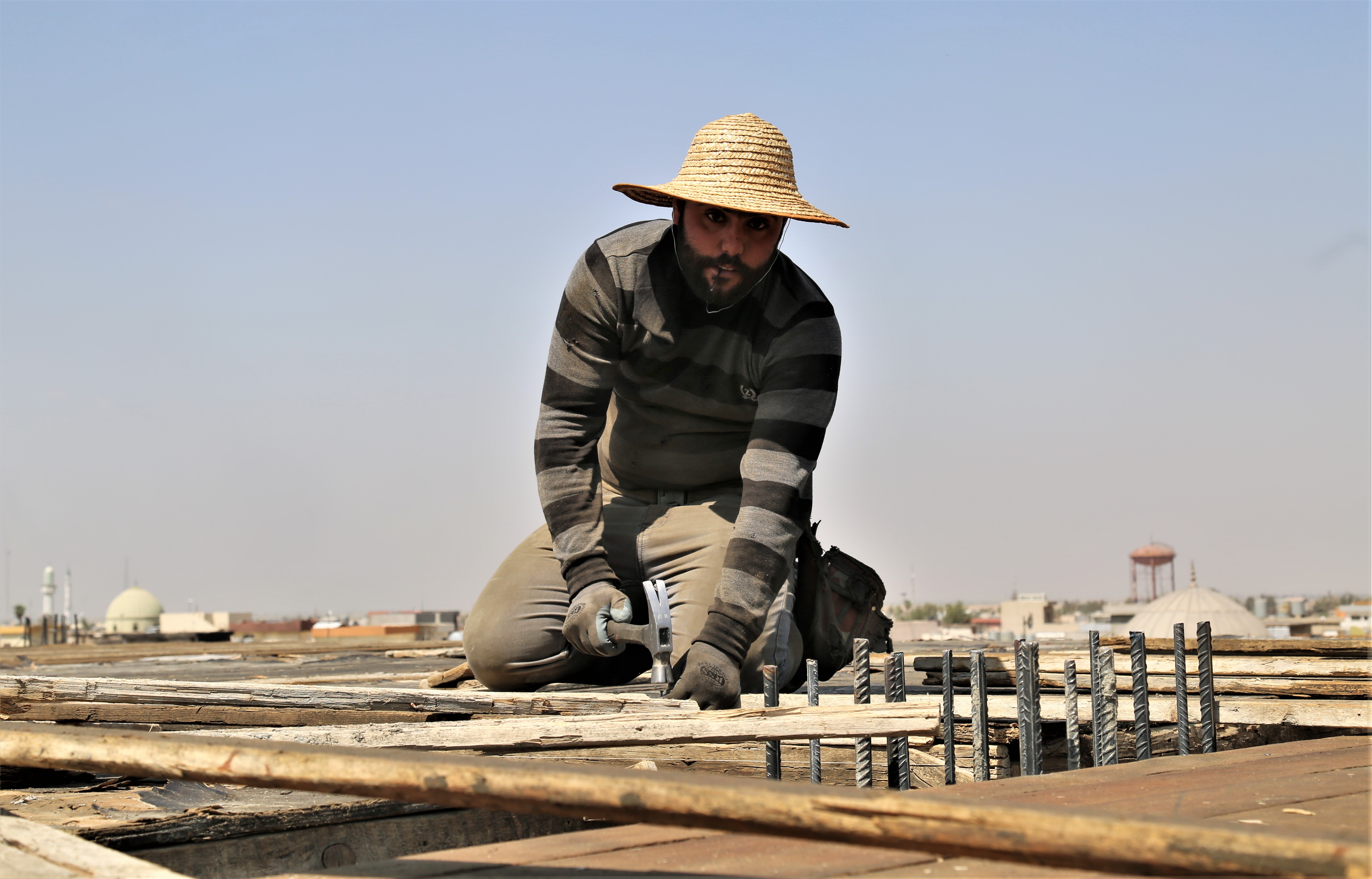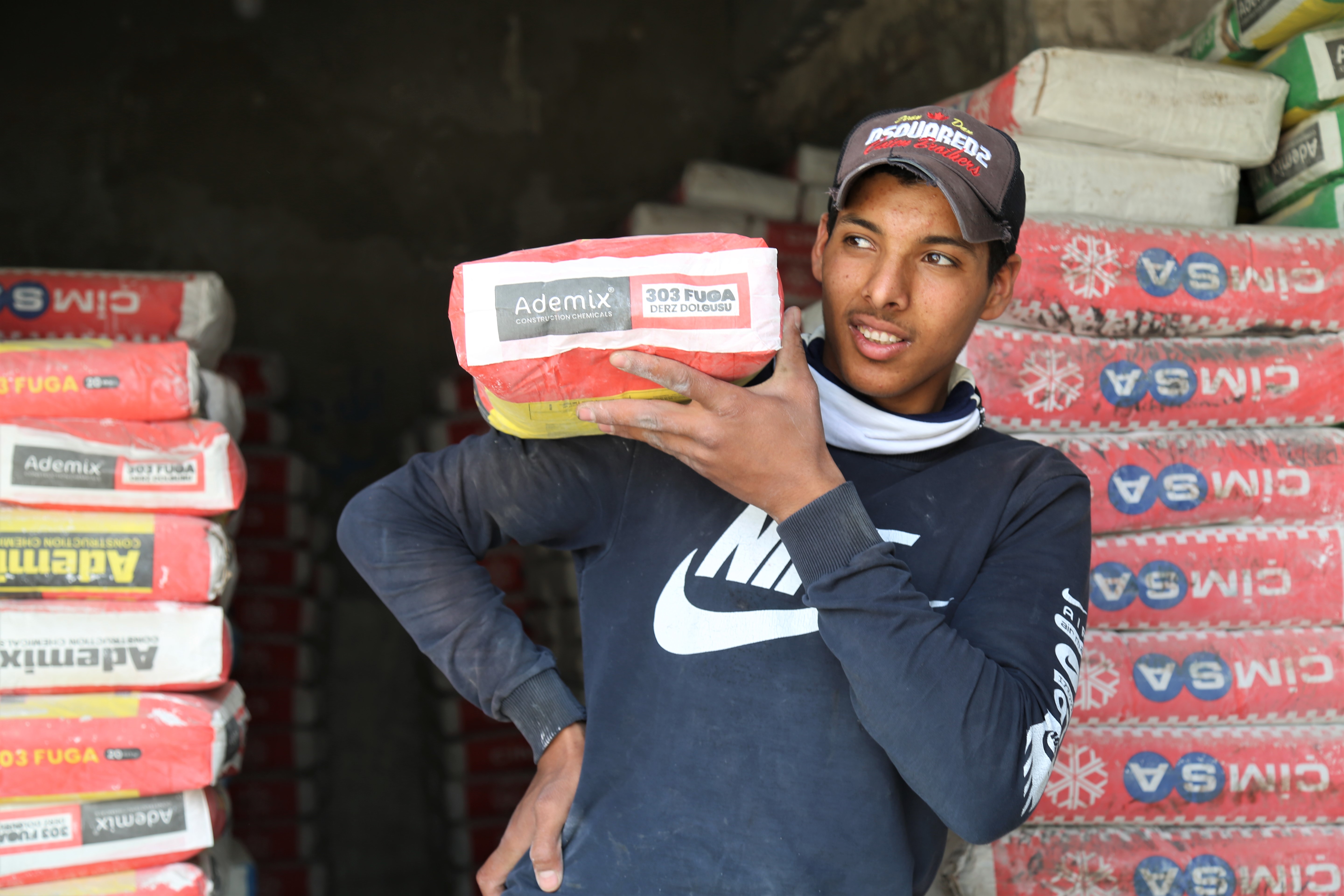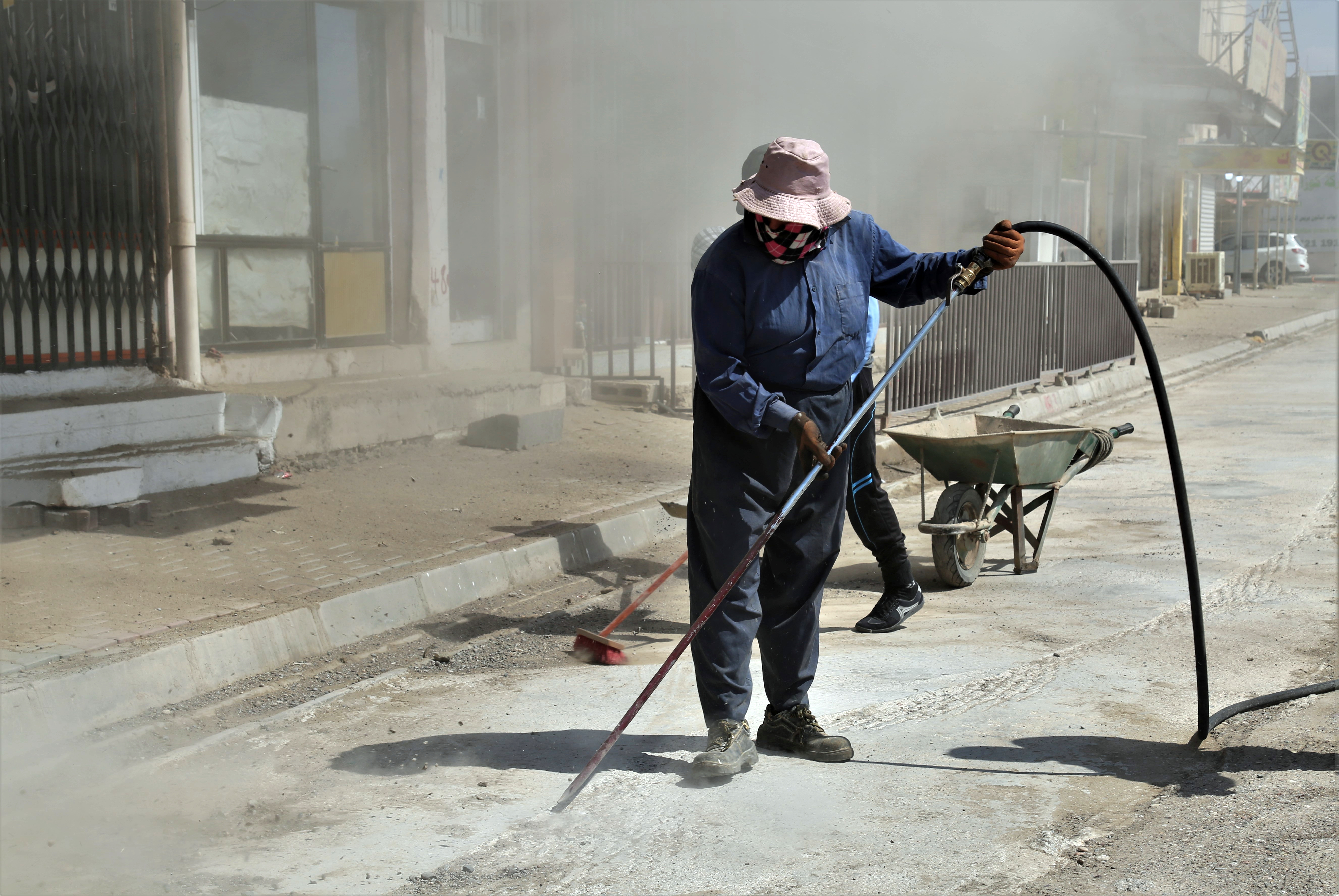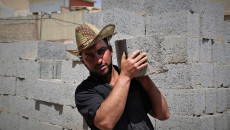Ahmed Sabir has been working as a laborer for the last three decades yet still he is in need and always in a critical financial situation.
In Ahmed Agha square for daily-hired construction workers, all workers alike Sabir are thriving to find an employer even in the international Labor Day while they are supposed to be resting with their families.
“I wish God take our lives all than chasing some one every day to hire us,” desperately describing his days.
Sabir, 60, looks very tired and hopeless. He spent half of his life in this carrier but the income is limited. “In 3o years have made nothing. I keep running only for breadwinning, even that we can’t get."
He is worried that so far he could not provide a proper and stable life for his family. “Every country is better than Iraq. I have no any property up to now.”
Iraq has witnessed a sharp increase in national poverty rate from 20% in 2018 up to 31.7% and the total number of poor to 11.4 million as a socio-economic impact of the Covid-19 pandemic, founded a newly released assessment by the Iraqi Ministry of Planning with the support of UNICEF, World Bank, and Oxford Poverty and Human Development Initiative.
Iraqi government has spent only USD20 per person as one and only payment for non-employed people with limited income amid Covid-19 pandemic when unemployment hit 30% early 2020, local officials in Kirkuk earlier told KirkukNow.
Ministry of labor and social insurance said only 0.5 million people receive social insurance salaries from private sectors of construction, foreign companies, communication, restaurants, bakeries, stores and others.
State employees one retired are entitled to a pension salary mounting to almost 80% of their monthly salaries while at office.
The daily-paid builders are not entitled to social insurance or retirement, blaming the government and unions for not enlightening them about their lawful rights.

Kirkuk April 2021- A daily-hired construction master is nailing wood to construct a structure for concrete. Photo by Karwan Salihi.
The Covid-19 pandemic and weekend curfews made life harder for daily-paid workers as it has led to recession in reconstruction and renovation.
Daily-paid workers usually attend a public square in the morning hoping to be hired. The maximum they can work is 2-3 days per works as their employment is on daily bases and the curfew in the weekend makes a big challenge for them.
Unemployment by the government for the graduates has pushed them toward driving taxis and daily payment works which they hardly can find.
Ali Namiq, 28, said he has got master degree in history and now works as a worker. "I was one of the talented students yet this is my destiny."
Namiq, father of four kids, wishes he would have got his master degree following his experience as a worker in order to make his thesis about the life of workers.
"I urge my children just learn only to read and write because if you try to get a degree, later you find out your life is almost over and can't make anything."

Kirkuk April 2021- a young worker carrying a 50kg bag of cement. Photo by Karwan Salihi.
Unemployment in Iraq is between 11-13% according to the United Nations.
Most of the daily workers are illiterate people whom have no full knowledge about their legal rights, social insurance, safety and security. Poverty in many families pushes them to send the teenager boys to work in order to support the family financially.
In the last four months, 5 workers have passed away due to carelessness about safety procedures in the work environment.
On April 10th, three workers passed away when a concrete wall fell on them. One of them was only 14.
The oil rich city of Kirkuk, Iraq's second largest oil reserves, is ethnically a mixed province of Kurds, Sunni and Shiite Arabs, and Turkmen. It has long been at the center of disputes between Baghdad and the autonomous Kurdistan Regional Government KRG.
Kirkuk, 238 kilometers north of Baghdad, is located in a disputed area of Iraq that runs from Shingal on the Syrian border southeast to Khanaqin and Mandali on the Iranian border. Kurds wanted Kirkuk to become part of the Kurdistan region, which has been opposed by the regions with Arab and Turkmen populations.
In February 2021, Kirkuk has produced about 3.8 million barrels for $60/barrel topping up $228 million to Iraq’s national revenues while in January it has produced only 3m barrels of crude oil, barrel per $53.
Kirkuk April 2021- the site where three workers passed away. Photo by Karwan Salihi.
Workers criticize their syndicate of not fighting fiercely for their rights.
Rizgar Sa'id Mohammed, director deputy of Kirkuk's Workers Union, said 80-90 workers won their cases against their employers at court. "We hire them lawyers and we pay for it to defend themselves and do not give up their rights."
According to Iraqi labor law, laborers are entitled for compensation in case mentioned in their contract with their employers once they face an incident or get hurt.
According to Mohammed, effective laws related to laborers if implemented will be in the interest of the hard-working builders. "The week point it provides insurance for long-term employed workers not those daily hired and paid."
Social insurance covers workers in factories who pay 5% of their salaries to insurance fund and the employer undertakes 21%. In cases of death or paralyze, the government pays a monthly salary of IQD350,000 ($230).
Permanent business owners such as factories are obliged per Iraqi law to register their workers and pay the insurance rate.






